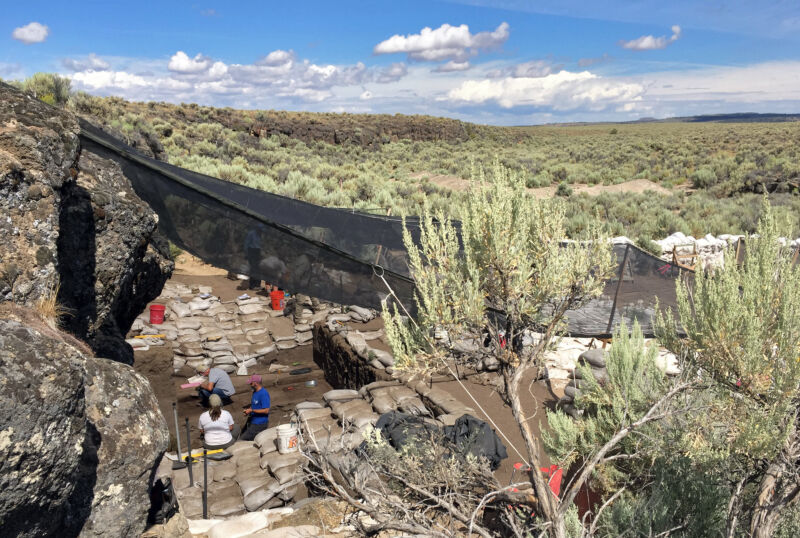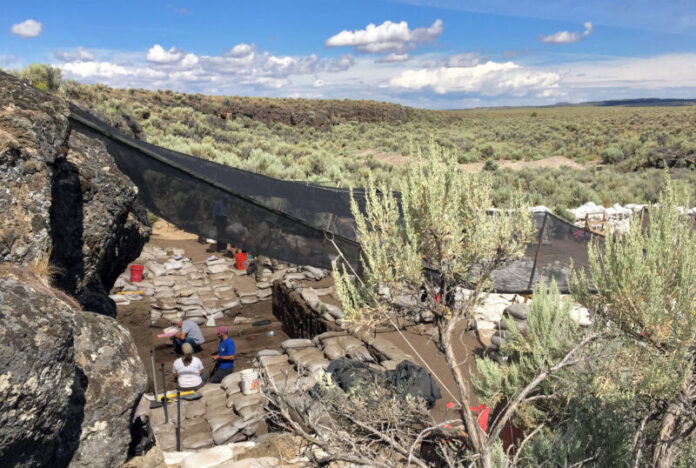
Enlarge / Rimrock Draw Rockshelter has been excavated since 2011. (credit: Bureau of Land Management)
Stone tools unearthed from a rock shelter in Southern Oregon were last used more than 18,000 years ago, radiocarbon dating suggests. That makes the site one of the oldest-known human living spaces in the Americas. But the people who lived in Oregon more than 18,000 years ago almost certainly weren’t the first to call the continent home.
A home where the buffalo roam
Buried deep beneath a layer of volcanic ash, archaeologists excavating Rimrock Draw Rockshelter found two stone scraping tools, which ancient knappers had skillfully shaped from pieces of orange agate. A residue of dried bison blood still clung to the edges of one scraper, a remnant of the last bit of work some ancient person had done with the tool before discarding it. The layer of volcanic ash above the tools had blasted out of Mount St. Helens, a few hundred kilometers north of the rock shelter, 15,000 years ago, long after the fine agate scrapers, and the people who made and used them, had been forgotten.
But how long?
Read 14 remaining paragraphs | Comments
Ars Technica - All contentContinue reading/original-link]




